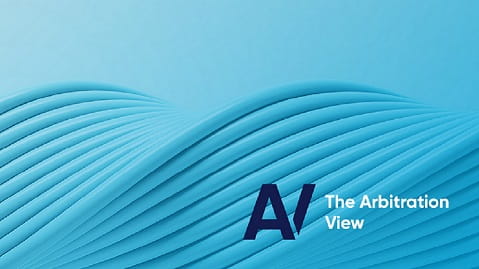- On this page
In The Arbitration View our international experts discuss what's going on in the world of arbitration. Throughout our video series below, members of the team will cover topics including virtual hearings, the role of the arbitrator and developments in different countries and their implications for clients.
Video series

Episode 6: New developments with security for costs
What are security for costs orders and how do they work in the arbitration context? Karel Daele and Elizabeth Montpetit discuss how the security for costs mechanism operates in both the international commercial arbitration context and the investment arbitration context. In particular they consider recent amendments to the ICSID Arbitration Rules which now explicitly allow parties to apply for security for costs.

Episode 5: Should awards be published?
Arbitral proceedings, including awards, are intended to be private. But is there value in redacting party names and making awards publicly available? Paul Blakeway, Senior Counsel, is joined by James Baldwin, Senior Associate, to discuss whether awards should be published and what opportunities this could present for the legal community and clients alike.

Episode 4: Arbitration and India
Why would you choose arbitration over the courts in India? Partners Laurence Lieberman and Dr Philipp Behrendt look at the advantages of arbitration over the courts in India, why parties are choosing India over other countries and practical tips for India-related arbitration cases.

Episode 3: Should arbitrators be lawyers?
Why are arbitrators mostly lawyers? One of the advantages of arbitration over litigation is the ability to choose who decides your case. Could it be useful to have an arbitrator who isn't a lawyer, like a judge or technical expert? Or would this do more harm than good? Partners Laure Hue De La Colombe and Donata Freiin von Enzberg discuss the advantages and disadvantages of different approaches.

Episode 2: The future of virtual hearings
The pandemic forced massive change to ways of working, including in the legal sector where hearings were moved online. What effect did this have on arbitrators? Partners Nick Storrs and Ivo Deskovic discuss their experience with virtual hearings and the advantages and disadvantages they encountered using the format.

Episode 1: Is ruling as amicable compositeur fair and equitable?
If parties agree upfront, arbitrators can rule cases based on fairness and equity rather than strict application of the law. But does this lead to fairer awards, or subjective decisions? Partners Laure Hue De La Colombe and Donata Freiin von Enzberg discuss the implications of ruling as amiable compositeur and how it can affect cases.
Our experts
Latest - News and Insights

Staying out of court – the in-house playbook for proactive conflict resolution
by multiple authors

The fine line between judicial neutrality and academic freedom
Sham software reference not enough: Judge stays on in Mercedes emissions case
by Tim Mimpen and Mark Goorts

Key takeaways from London International Disputes Week 2024

ADIAC Arbitration Rules 2024: a solid foundation for Abu Dhabi’s new chapter

ADIAC Arbitration Rules 2024: Abu Dhabi's challenge to Dubai's DIAC

UK announces withdrawal from Energy Charter Treaty
by Karel Daele and Jess Thomas

Arbitration Act Review: astute evolution or missed opportunities?
by multiple authors

United Arab Emirates joins Arab Customs Cooperation Agreement: Federal Decree No. 90 of 2023

Recent investment treaty developments for the UK and Jersey
by Elizabeth Montpetit and Karel Daele





